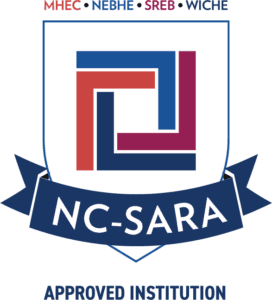Special Education, Instruction M.S. | Online
The Master’s in Special Education degree prepares educators with a deep understanding of the issues related to teaching and learning conditions for children with mild to moderate disabilities.




Why Special Education, Instruction M.S.?
The M.S. in Special Education equips professionals with expert knowledge and best practices to competently engage students with special needs in enriched and meaningful skill development and growth in all areas of life. Professionals with special education certification are in high demand in both inclusive and more restrictive classrooms.
Special Education, Instruction M.S. from Cairn
Biblical Integration
While you will study the same teaching and curriculum design concepts you would expect from any quality Master's in Special Education program, all instruction is grounded in the timeless Truth of God’s Word. No matter what your intended career path or field of study, Cairn is committed to helping educators think about their current and future work in education through a biblical worldview.
Academic Opportunity
Advance standing may be granted for Bible or theology credits earned at an accredited Bible college, Christian liberal arts college or university, or seminary. Credits will be granted on a course by course basis.
Experienced Faculty
Our online courses are taught by faculty who are committed to your professional and spiritual growth. Students don’t just have professors, they have mentors who invest in them throughout the program and often remain connected long after graduation.
Career Preparation
Field experience has been integrated into multiple courses.
Affordability
Cairn University students earn more than a professional credential – you develop a solid foundation for all of life and learning. Wherever you go after you graduate from Cairn, you go prepared and ready to make a difference in your workplace, your community, your church, and around the world. And our competitive tuition rates and financial aid packages help to keep your education costs reasonable. Educators working in Christian schools receive a 20% tuition discount.
Credit Award
At the discretion of the program advisor, three to six credits for prior learning (“CPL”) can be awarded for students with extensive background in areas addressed by specific courses.
more Details
Get an inside look at our Special Education, Instruction M.S.Program
There are over 70 unique programs at Cairn to choose from! Not sure if this is the best program for you? Here are some more details to help you decide.
Start in
- 00Days
May 13, 2024
Finish in
Years (Avg.)
Required Credits: 36
Curriculum Highlights:
- SPE 761 Inclusionary Practices
- SPE 762 Develop/Diag Reading Intervent
- SPE 763 Teach Child Higher Incidence
- SPE 764 Teach Child Lower Incidence
- Principal
- Guidance counselor
- School psychologist
- Reading specialist




Connect With Us
An Affordable Education
While the cost of a Cairn University education is competitive with similar institutions, we realize you may need financial assistance to take this journey. You are not alone. 97% of our full-time undergraduate students receive some form of financial assistance.
Meet Our Faculty


Barbara Cooper
Chair, Special Education; Assistant Professor, School of Education
Barbara Cooper teaches classes in Special Education. She began her teaching career as a missionary, training people from around the globe. From there she taught in public and private school settings teaching in elementary levels and special education. She also has been an adjunct professor at Biblical Theological Seminary for seven years, teaching international students English and American culture. She is married to Derek, and they have three children.


Juliana Duprey
Faculty, School of Education
Mrs. Duprey taught in Autism Support for 7 years in the School District of Philadelphia and also has experience with ESL tutoring and working with children in early childhood programs. At Cairn she teaches education courses such as Foundations of Special Education and Diagnosis and Evaluation of Exceptional Learners. She has been married to her husband, Marques, for seven years, and they have two boys. She grew up in Philadelphia but now lives in the Abington area where she and her family are excited to be part of a church plant in Brewerytown.
What Our Students Have To Say


David Falcon
Being involved with the Special Education program has provided me the opportunity to form many meaningful and impactful relationships with peers and mentor teachers who have opened their classrooms to me. There couldn't be enough said about Professor Cooper, who always made herself available for guidance, mentorship, and prayer. Special Education is always viewed through a biblical lens, which allows everyone to be viewed as God's unique and perfectly designed creation.
Cairn Online Frequently Asked Questions
The tuition for post-secondary education has become expensive in general. However, Cairn Online programs rank amongst the most affordable online bachelor’s and master’s programs. While the tuition costs vary by program level, the rate is typically $425 per credit or 12K per year for A.A. and B.S. programs and $300-$725 per credit for graduate programs.
The current tuition rates are available from this page. Scholarships and financial aid are also available.
Currently there are over 6 million online learners in the United States, and those numbers are growing every day. Online degrees that have regional accreditation are held to the same standards as traditional universities, ensuring that students earn a valuable degree that will prepare them with the skills and credentials for their career. Do research to find an online degree that is accredited and reputable, such as those offered at Cairn University.
Cairn Online courses based on Cairn’s 100+ years tradition of excellence in biblical education. Our on faculty has carefully designed them taking into consideration what works best for the online learner. The modular design and asynchronous delivery enable you to complete your studies while you pursue your career, ministry and spend time with your family.
Courses typically contain seven units and are delivered in 7-week terms*. Each unit contains 5-7 modular activities. Each learning activity includes instructional videos accompanied by reflections, quizzes, discussion forums and other assessments. Courses also utilize adaptive learning technologies such as Cerego for long-term retention of concepts and VoiceThread for enhanced collaboration.
The asynchronous delivery provides flexibility around your daily busy schedule. In most courses, interactive activities are typically due by Wednesday while the rest of the unit’s work is due by Sunday night. The MBA, M.A. in Music and Criminal Justice programs use the 7RD2 process and require the completion of certain activities daily to optimize learning.
Our own Cairn faculty intentionally participate in the course throughout the week to provide you with an incarnational experience.
*Few capstone courses are intentionally offered in 14 weeks to optimize student learning.
A.A. programs usually take 2 years and B.S. and B.A. programs typically take 3-4 years to complete.
Graduate programs vary in length by program. As an example, Cairn’s traditional MBA typically takes 20 months to complete but then there is also the accelerated One-Year MBA that you can complete in 12 months.
If you are looking to complete your program sooner, you can consider taking more 7-week courses at a time.
All courses are developed by one or more course developers and taught by our own faculty. The instructors are also intentionally involved in the course throughout the week by providing direction in the course activities, participating in the forum discussions, grading the student work and providing substantive feedback. Most courses also offer optional office hours weekly via Zoom or similar video conferencing tools.
Our instructional design team works very closely with the course developers and carefully plans the courses to balance the technology requirements. Most courses use the eLearning platform for hosting the course materials, Panopto for video capture and storage, VoiceThread for enhanced discussion forums, and Cerego for adaptive learning. Zoom is used at times for virtual office hours. These sessions are optional.
Except for the Hebrew and Greek language courses for the B.S. in Biblical Studies program, typically there are no required meeting times for the completing the course activities.
The course transfer depends on where you are transferring from, and what program you are transferring to. If you are coming to Cairn Online from another institution, it is very likely you will have some credits that will transfer. Because there are so many options, we encourage you to talk to an enrollment counselor. If you are transferring out, Cairn is a regionally accredited school and some credits should transfer with relative ease. Each college sets their own transfer criteria, so be sure to check their policies for specifics.
Cairn Online offers a variety of options for prior learning and experience. You can receive up to 6 credits for prior learning for graduate programs. At the discretion of the program advisor, three to six credits for prior learning (CPL) can be awarded for students with extensive background in areas addressed by specific courses. Additionally, advance standing may be granted for Bible or theology credits earned at an accredited Bible college, Christian liberal arts college or university, or seminary. Credits will be granted on a course by course basis.
Cairn is approved to offer financial aid because of its regional accreditation. There are many options available and typically students qualify for at least one type of federal aid. Many students receive scholarships and grants that make earning their degree even more affordable. Cairn offers a variety of scholarships and discounts in addition to options for loans and grants. Please refer to this page for details.
The requirements depend on the program you are considering. Please refer to this page for details.
